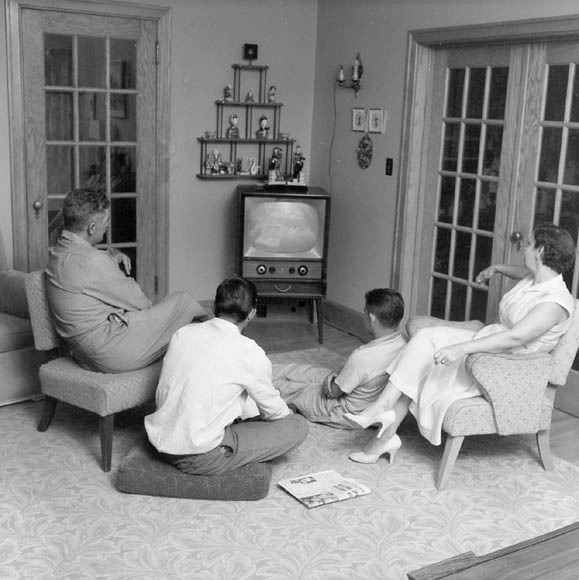We’ve all heard the stories of the other woman.
The one who watches the man she’s in love with go home every night to his family, a mere spectator of the life she longs for. She stands with her nose pressed against the glass, gazing in at a life that should have been hers. Hope wanes as every day she sinks further into the reality that his life will never be her life. Eventually, defeated, she returns to her solitary existence.
Because she knows it hurts less to be alone than it does to beg for scraps of attention from someone whose first love will always be his family.
That is the story of the other woman. But it occurred to me recently that a similar pain is experienced for those of us who have lived as the other daughter. The one whose parents divorced when we were young. Who lived not only with the absence of a father but who then watched him remarry and have another family. A family with a mum, dad, three kids and a Labrador.
While our childhood was stitched together with fragments of loneliness, struggle, neglect, dysfunction and often times, abuse.
I realized this is how I have lived much of my life. With my nose pressed against the glass as I gazed in at a life I wished had. And furthermore, I realized how much it has actually affected me to feel like the other daughter.
We suffer greatly when a parent leaves. It begins the moment they walk out the door and we blame ourselves that we couldn’t make them stay. We weren’t enough. Our wounds defy logic and reason—we cannot as children have the grief of a parent leaving explained to us rationally. No matter what the circumstance, a part of us will always internalize a parent leaving as our fault. But when our fathers remarry and have another family, it becomes a wound from a double-barreled shotgun.
Because this is where it all begins for us as daughters. This is where we form our core beliefs about our identity, worthiness and belonging. This is where our insecurities arise—our inability to trust, our fears of rejection and abandonment, our relationship issues and our addictions. It all starts here with our shame that who we are was never enough to make our fathers stay. But who they are, his other children…they must be everything we could never be.
And so we fight our perpetual battle to prove our worthiness. Our life becomes a silent competition to prove how worthy we are—how capable, how intelligent, how successful, how attractive. We seek attention and affirmation to feed the hungry abyss in our soul but the irony is, all the attention and affirmation in the world will never be enough. Because at the end of the day, our fathers still chose them, not us.
Our pendulums then swing the other way. We no longer believe we are worthy of anything good in our lives. Feelings of sadness, loneliness, abandonment and rejection swallow us whole. We begin to sabotage our careers, our bodies and our relationships. We succumb to the inherent belief that anyone we love and trust will eventually abandon us, so we leave first. Or else we cause so much hurt to the person we love in the hope it will make them leave so we can feel some twisted satisfaction in proving ourselves right.
And it’s not that we begrudge the other family. We love them, we really do. Because they have the same father as we do, they share the same DNA. They have the same blue eyes and the same heart-shaped face. All those same mannerisms passed down to us, we also see in them. We are proud of them when we hear of their achievements, their grades, their university scores, their sports achievements. But the thing is, we achieved all those things too. And we achieved them in spite of our crappy circumstances. But no one was there to be proud of us.
The wounds we feel as the other daughter are very real. We live with a constant sense of isolation, anger, confusion, betrayal and grief over being abandoned, rejected and not having the life we longed for. The life we were no less deserving of. We strive to be seen, fight to establish our worth and seek to belong to something or someone that will make us feel accepted and loved.
But something else I’ve come to realize is this: Just because I believe something to be true, doesn’t mean it is.
Confabulation is a term used to describe the times we replace missing information with something false that we believe to be true. Essentially, confabulation is an honestly told lie with no intent to deceive. It is our truth, even if it is not the truth.
As children, if a parent leaves, we can’t comprehend the full story. There are huge gaps and our brains aren’t wired to cope with the missing pieces. And so we fill them in with our own version of events. We connect the dots in a way that makes sense to us and aligns with our belief of who we are and how we fit in the world.
And sometimes, our stories are wrong.
In order to heal, we must change our stories. While we may always feel like the other daughter, this is not the truth of who we are. We are far more than that. We are the daughters of creation, the daughters of our ancestors. We are here by design, with purpose and intent because there was something in this world that nobody could do but us. We are here because we are loved, worthy, important and valuable. We are deserving of all good things and we must take hold of them, claim them, own them as ours and allow them to be part of our new story. The rejection we have felt has never been about us, it was about an adult world of which we knew nothing of at the time. But now we know it for ourselves. We know how hard this life can be. We are all fighting our own silent battles. Our fathers did the best they could with what they knew. And we have done the same.
But now, beloved daughter, we know better. So let us do better.
~
Relephant Read:
Getting Over the Fear of Abandonment—A Letter to Those Who’ve Been Left.
Author: Kathy Parker
Apprentice Editor: Carlene Kurdziel; Editor: Travis May











Read 0 comments and reply